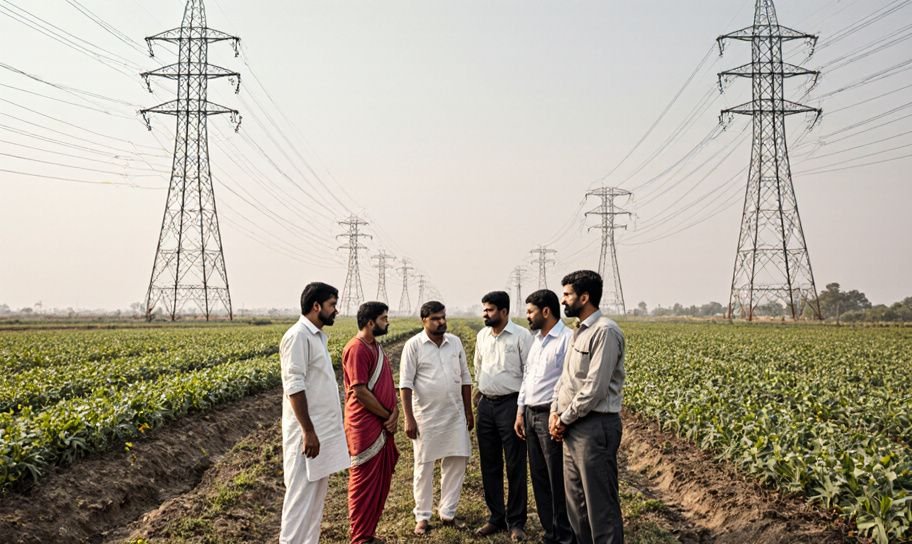
Summary: A group of farmers challenged a court decision about compensation for damages caused by Power Grid Corporation of India Ltd. The High Court decided that these appeals can't go forward because of existing laws.
In this case, several farmers, including Vishnu Tukaram Salunke, filed appeals against the Power Grid Corporation of India Ltd. They claimed that the corporation's actions harmed their farmland and crops. These actions were carried out under Section 10 of the Indian Telegraph Act, 1885.
The District Judge-11 in Aurangabad had ruled in favor of the farmers. The court ordered Power Grid Corporation to pay compensation, ranging from Rs. 2,232 to Rs. 7,900, with 6% yearly interest. These decisions were based on civil cases filed by the farmers.
The farmers, represented by Mr. K. D. Jadhav, argued that their appeals were valid under Section 96 of the Civil Procedure Code. They believed the initial decisions should be looked at again for fair compensation.
Farmers' Stand: Mr. Jadhav argued that since the cases were registered as civil cases, the appeals should be allowed under Section 96. He stressed the need for a chance to reassess the compensation.
Corporation's Stand: Mr. Girish Rane, representing the Power Grid Corporation, argued that the Indian Telegraph Act, 1885, specifically says that decisions by the District Courts are final. Therefore, appeals under Section 96 are not allowed.
Judge Ajit B. Kadethankar concluded that the appeals can't go forward. The Indian Telegraph Act, 1885, particularly Section 16(5), clearly states that decisions by the District Judge are final and cannot be appealed under Section 96 of the Civil Procedure Code.
"The decision taken by the District Courts in a dispute referred to it or started before it under Section 16(3) of the Act of 1885 is considered final."
The court decided to return the appeals to the farmers, allowing them to present their cases in the right place. This decision was made to avoid unnecessary legal costs and complications for the farmers.